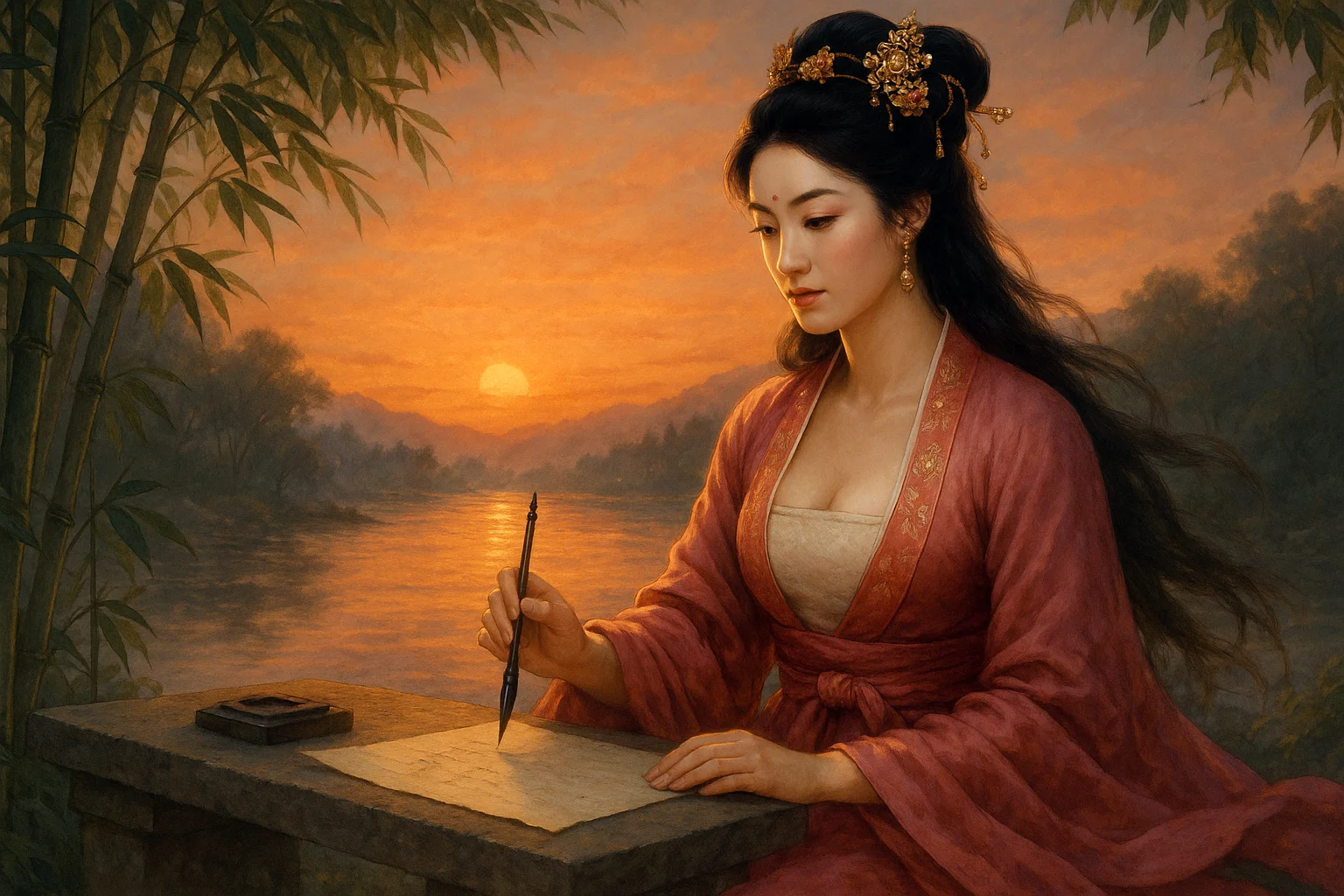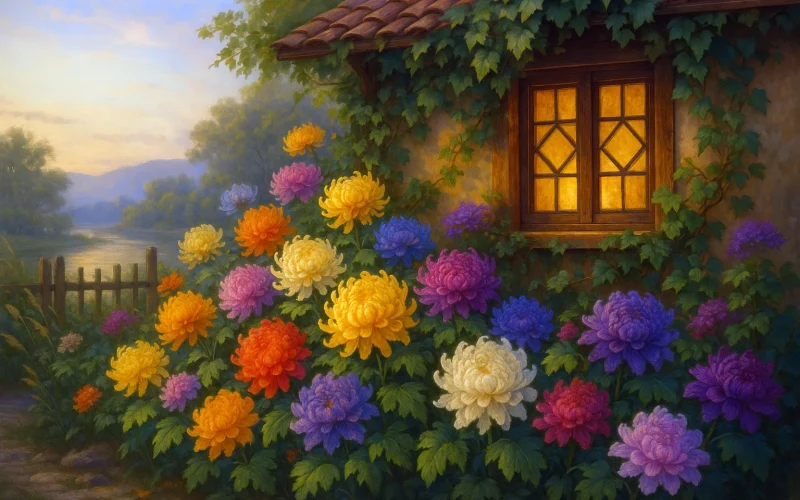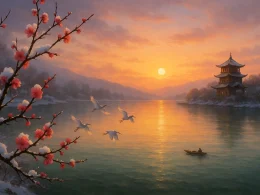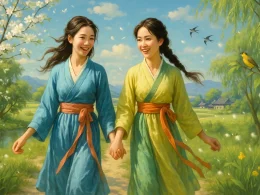Petal by petal you fell in late spring last year;
Since you are gone, my paper's wet with tear on tear.
I am afraid you'd vanish like cloud in a dream.
How can I wish to see you on Peach Blossom Stream?
Your fragrance sweet reveals you have a loving heart;
Your silence shows we know each other far apart.
By the side of your balustrade I'd only sleep;
To tell you how I long for you when night is deep.
Original Poem
「牡丹」
薛涛
去春零落暮春时,泪湿红笺怨别离。
常恐便同巫峡散,因何重有武陵期?
传情每向馨香得,不语还应彼此知。
只欲栏边安枕席,夜深闲共说相思。
Interpretation
This lyrical work by Tang Dynasty poetess Xue Tao employs personification to envision peonies as a long-lost lover, blending floral imagery with profound emotional resonance. Xue Tao's life of wandering and hardship often infused her poetry with this fusion of natural elements and tender sentiment. Through a dreamlike interplay of reality and illusion, the poem expresses both yearning and enduring attachment.
First Couplet: « 去春零落暮春时,泪湿红笺怨别离。 »
Qù chūn língluò mùchūn shí, lèi shī hóng jiān yuàn biélí.
Last spring, you withered in the season's twilight; My tears stained crimson paper, lamenting our parting.
The opening lines establish time and mood with "last spring's withering," while "tear-stained paper" reveals deep emotion. The peony, both flower and personified lover, embodies a tender farewell—melancholic yet graceful, lingering with unspoken affection.
Second Couplet: « 常恐便同巫峡散,因何重有武陵期? »
Cháng kǒng biàn tóng Wūxiá sàn, yīn hé chóng yǒu Wǔlíng qī?
I feared we'd vanish like the Goddess of Wu Gorge— How then do we meet again, as in Wuling's serendipity?
"Wu Gorge's dispersal" (巫峡散) alludes to the ephemeral encounter between King Xiang of Chu and the goddess, while "Wuling's chance" (武陵期) references the Peach Blossom Spring's utopian reunion. Xue Tao oscillates between despair over eternal separation and awe at their miraculous reunion, weaving romantic tension.
Third Couplet: « 传情每向馨香得,不语还应彼此知。 »
Chuánqíng měi xiàng xīnxiāng dé, bù yǔ hái yīng bǐcǐ zhī.
Your fragrance speaks what words cannot convey; Silent, yet we understand each other perfectly.
Here, the bond between poet and peony transcends language. The flower's scent becomes a metaphor for unspoken intimacy, showcasing Xue Tao's sensitivity and elevating the peony from object to sentient companion.
Fourth Couplet: « 只欲栏边安枕席,夜深闲共说相思。 »
Zhǐ yù lán biān ān zhěnxí, yè shēn xián gòng shuō xiāngsī.
Let me lay a mat beside your railing, To whisper of longing through the quiet night.
The poem crescendos with this immersive fantasy—from "tear-stained parting" to "nocturnal confessions." It reflects not just adoration for the flower, but an idealized vision of human connection, rendered poetic and timeless.
Holistic Appreciation
Xue Tao's peony becomes a vessel for love lost and found, merging personal emotion, nature, and myth. Her distinctly feminine sensitivity crafts a "flower-as-lover" duality, rich in psychological depth. The poem balances reality and dreamscape, its emotional arcs and imagery layered with artistic tension.
Artistic Merits
- Personification & Atmosphere: The peony breathes as a lover; scene and sentiment intertwine.
- Allusive Depth: Myths of Wu Gorge and Wuling elevate emotion beyond the personal.
- Subtle Language: Feelings pulse beneath the surface—in scent, silence, and moonlit whispers.
- Structured Passion: From parting to reunion, wonder to communion, each step unfolds organically.
Insights
To the Peony Flower transcends floral tribute to become an ode to love's quiet power. Xue Tao teaches us: the deepest feelings thrive in nuance, not declaration. In an era of haste, her poem reminds us to cherish the delicate threads—between humans, and between humanity and nature—that weave life's truest beauty.
Poem translator
Xu Yuanchong (许渊冲)
About the poet

Xue Tao 薛涛 (c. 768–832), a Tang Dynasty poetess styled Hongdu (洪度), was born in Chang'an (present-day Xi'an, Shaanxi). The daughter of official Xue Yun (薛郧), she relocated to Sichuan and later settled in Chengdu after her father's death. Though she composed over 500 poems in her lifetime, only around 90 survive today - a profound cultural loss. Her symbolic poetry often expressed yearnings for purity and moral integrity through natural imagery.











